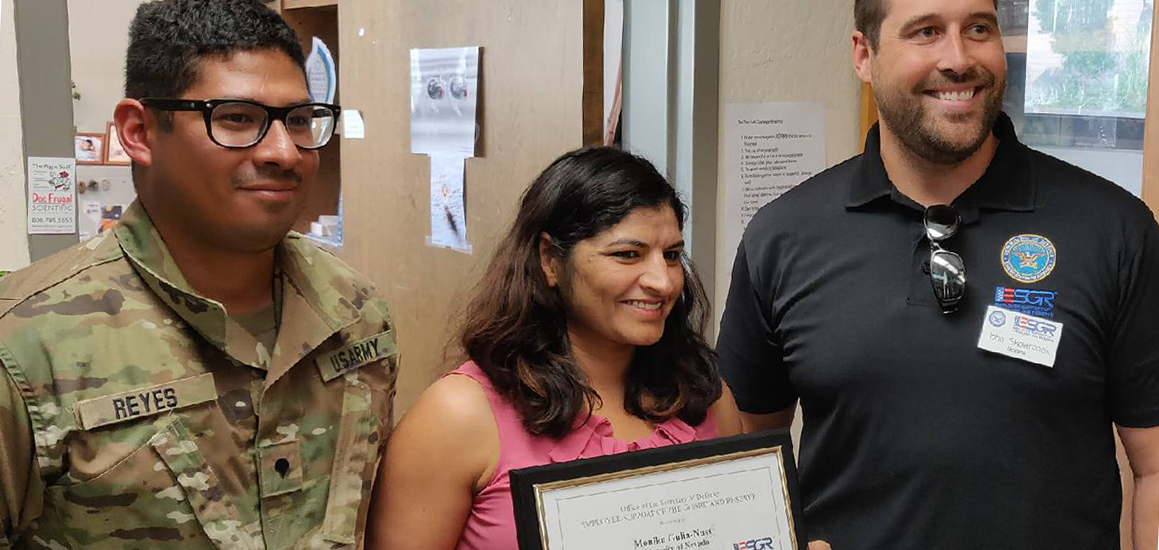University of Nevada, Reno's Assistant Professor of Molecular Biology Monika Gulia-Nuss was recently recognized for her efforts to support students in the military, when she received the Employer Support of the Guard and Reserve's Service Member Patriot Award.
The award, presented by the U.S. Department of Defense, is given to individual supervisors and bosses who have provided support to service members. Service members nominate their supervisors for their support, which may include accommodating flexible schedules, time off before and after deployment, care for families, and leaves of absence.
"Many jobs aren't supportive of military duties," said Army Spc. Jeremiah Reyes, who nominated Gulia-Nuss and is a graduate student working in her lab at the University's College of Agriculture, Biotechnology and Natural Resources. "I know people who have lost jobs due to deployment or summer training. Dr. Gulia-Nuss supported my military duties and still trained me in the lab. She also held my spot for me when I left for one month of military training in Washington state. It was like I wasn't even gone."
Gulia-Nuss found it natural to offer her support to Reyes, along with two cadets attending her molecular biology class.
"If our young men and women are serving our country, the least we can do is help them achieve their academic goals," she said.
{{RelatedPrograms}}
As a result of Gulia-Nuss's support, Reyes is able to lead two research projects alongside his military duties: a collaborative project with the University of Richmond, Virginia to study the differences in the genetic makeup of tick populations, and a project to identify and better understand enzymes ticks use for blood digestion - their sole food source - to ultimately control the tick population and prevent the spread of diseases such as Lyme disease.
For Gulia-Nuss, having people like Reyes, who is also Hispanic and a first-generation graduate student, is beneficial and imperative to the scientific community.
"I value diversity in scientific fields," she said. "The diverse background of students brings a different set of experience to the work environment, especially to the lab."












